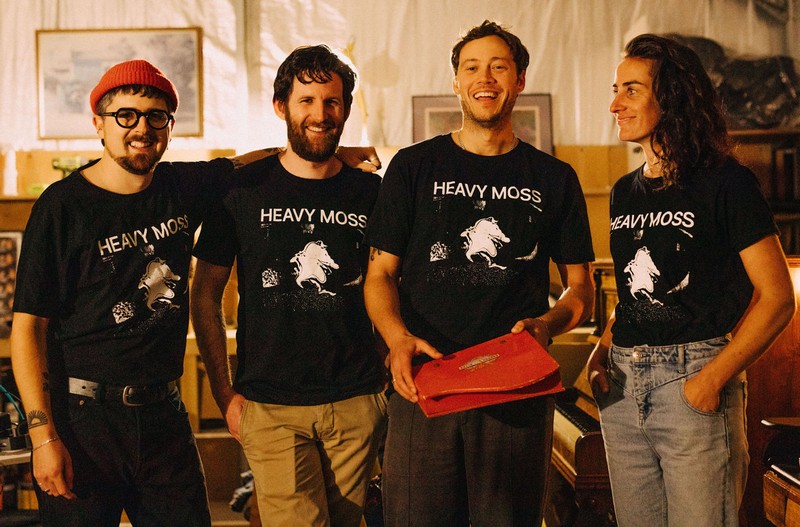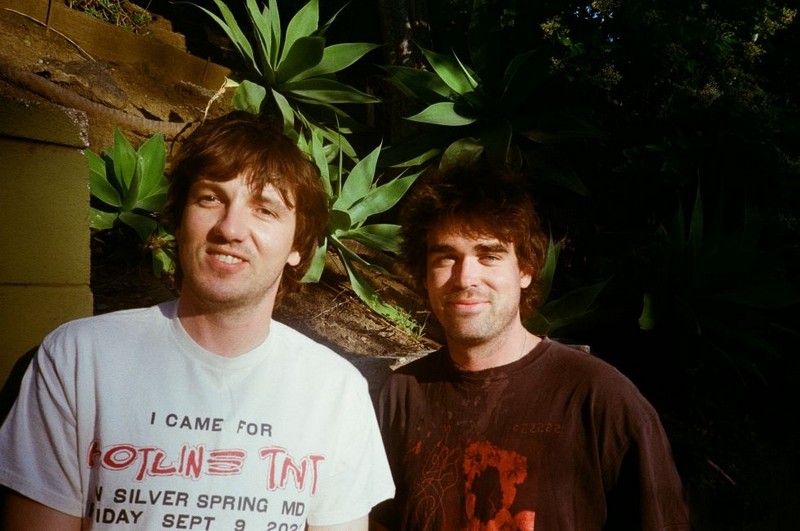 Philip Selway, best known as the drummer in Radiohead, has released his third solo album revealing an affinity for the elegant and artful, technologically enhanced, somewhat experimental, larger than life arrangements that has long been part of his main band’s largest works. Surprisingly, Selway and producer Marta Salogni brought in Italian drummer Valentina Magaletti, due to him being out of practice and not in the right mood, but Selway is joined as well by Quinta, who played various keyboards, strings, and some percussion on his 2014 release, Weatherhouse. They are joined by Hannah Peel, who works with synthesizers, strings, and orchestration, Portishead guitarist Adrian Utley, and cellist Laura Moody.
Philip Selway, best known as the drummer in Radiohead, has released his third solo album revealing an affinity for the elegant and artful, technologically enhanced, somewhat experimental, larger than life arrangements that has long been part of his main band’s largest works. Surprisingly, Selway and producer Marta Salogni brought in Italian drummer Valentina Magaletti, due to him being out of practice and not in the right mood, but Selway is joined as well by Quinta, who played various keyboards, strings, and some percussion on his 2014 release, Weatherhouse. They are joined by Hannah Peel, who works with synthesizers, strings, and orchestration, Portishead guitarist Adrian Utley, and cellist Laura Moody.
In the label’s bio, Selway suggests that this time out he was aiming for a sound as if Carole King had collaborated with pioneering electronic composer Daphne Oram and invited him to drum on it. Well, Selway didn’t actually drum on it and if there had been a coin toss, Oram obviously won, because even a quick listen to the monumental Tapestry, would remind anyone that King is not only a vibrant, soulful piano player, but she has a stellar vocal and emotional range, several things that are missing here on Strange Dance. But to its credit there is plenty of interesting electronic arrangements going on.
At its core the opening track, “Little Things” is a softly played and sung piano ballad at heart, with a vague warning to “don’t believe what they say.” Hung around that frame-work are lush orchestrations, and occasionally a bit of electronic noise or flutter. And that description generally fits a number of other tracks here, like “The Other Side” and “The Heart of It All” with notable sonic additions, like the regular drum beat in “Check for Signs of Life.” The longer “What Keeps You Awake at Night,” is musically more interesting with the addition of electric guitars, and punctuated percussion that builds as the orchestration swells to absorb the track’s middle section. In the seven-minute track’s final minutes the tone changes to smartly constructed vibe and percussion that develop a fun rhythmic pattern that carries it to the conclusion.
The best song here, “Picking Up Pieces” actually picks up the pace, the one song with a bit of a lively, pop melody line, and a rhythm that gives you something to hold onto as the song progresses and then gets noisier at the end. The album’s title track kicks off with a curious mechanical percussive rhythm track, but Selway’s vocal is similarly soft and distant. So many of these songs are based on gently played piano, that it’s unnaturally exciting when “Make It Go Away” begins with a more rhythmically dynamic acoustic guitar, which fuels another poppier melody for Selway to sing. “Salt Air” leans into a more electronic frame, and it’s almost a relief to not hear the simple subtle piano return, even as the dull alarm sound only seems to grow to the noisy end.
The album concludes with Selway pretty much alone with his piano at the opening of “There’ll Be Better Days,” with sonic additions that build as the song develops. While much of the album’s focus is on broken trusts, disappointments, and sad endings, so this is likely an attempt to end on a positive note, but it fails to be convincing. Selway and company have taken these relatively simple songs and smartly constructed appealing musical arrangements around them.
Brian Q. Newcomb
For more of Brian Q. Newcomb’s music reviews, check out The Fire Note
Other reviews you might enjoy:
- And in the Darkness, Hearts Aglow (Weyes Blood) – music review
- What Surprises Us (Patsy Moore) – music review
- Pleasure by Feist – music review

The Fire Note started to create a simple place that could showcase records that we liked. Nothing more, nothing less. The focus has always been about the album and the experience that a great record creates. The Fire Note Webzine builds on this idea by offering an array of content that is all about the enjoyment of music, its pulse and energizing attitude.





